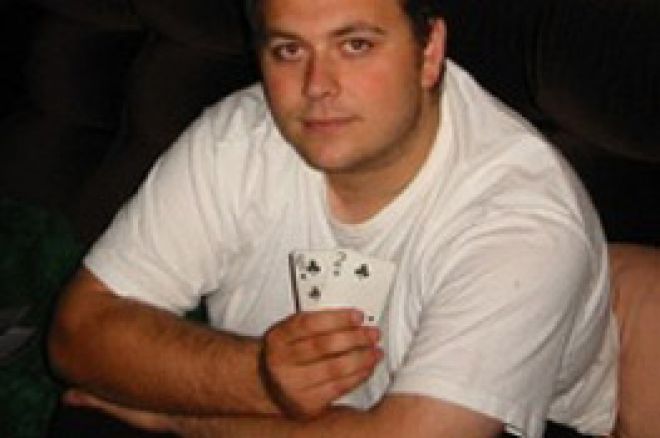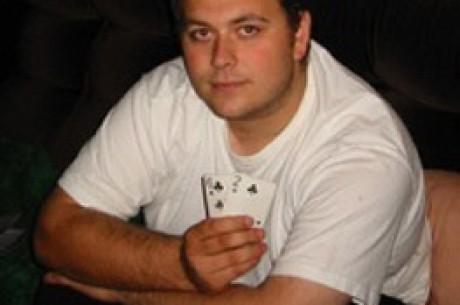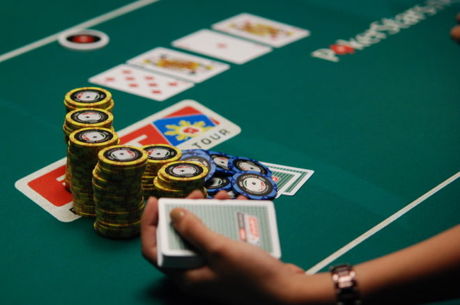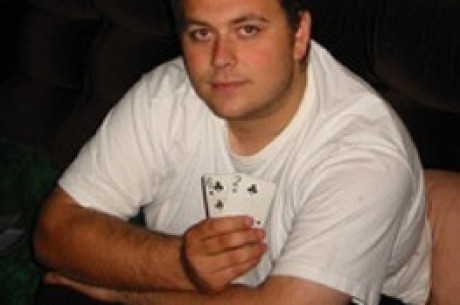Dealing with a Raise on the River

Generally
On the river, you can actively determine where your hand ranks in comparison to the potential hands that your opponent may hold. While this is an elementary process, it is nonetheless important to go through. I have seen some players make hideous mistakes, simply because they didn't work out what hands beat them. One night, I remember one player holding 8-8 called a bet on the river after the board finished 8-J-J-J-J. If he worked it out, the best he could do was split the pot. I recall another situation where a player had Jh-10h and the board read 10s-Js-Qs-Ks-Qd and called the river after two other players called. Terrible decision.
Utilizing this skill on the river will help you read your opponent. For example, if you hold AK and the board reads: Ad-7s-5s-3h-7d, you can be beaten by 7-X, A-A, 5-5, 3-3, or 4-6. Now you can try to work out what your opponent holds by reverse engineering. If my opponent usually raises on the turn with a reasonably strong hand, but didn't do so on this occasion, I can rule out A-A, 5-5, 3-3, A-7, 7-5, 7-3 or 4-6. As such, my opponent has either 7-X or he is bluffing. I wish I could give you further advice on making the correct decision after you have narrowed the possibilities. It involves knowing your opponent very well and mastering that skill will put you on the path to being a world-class player, especially in big bet poker (pot/no limit).
Dealing with a raise on the river
There is something very significant about the raise on the river: your opponent strongly believes that he has you beat. On the flop, a raise is not as dangerous because your opponents occasionally try to 'test you out' at this stage of the hand. If a player raises on the river, they know that they will be called more often than not which usually eliminates the possibility of them bluff-raising on the river. This is especially true when you have been betting the whole way and they raise you on the river. They know it will only cost you one more bet to look them up. In many respects, it seems fair to argue that you should fold on the river when raised in this situation since your opponent appears confident about winning a showdown.
Therefore, you should check the river when a scare card comes. You intended to bet on the river anyway, so checking and calling allows you to showdown the hand for the same price. Also, you may induce a bluff or mistake with this technique. I recall many occasions where I've held AK and the board read something like A-8-9-7-9. When I checked on the river, my opponent bet out with a hand like A-J or A-10. That said, don't automatically check whenever a scare card comes. You have to try and strike a balance between making money on the river and losing too much money with the second best hand. This can only be mastered with years of experience.
Danger Signs
There are two danger signs I wish to draw your attention to. The first is when there are several players taking the river, the river completes your draw, your draw is on the low end of the spectrum and you are faced with a raise. Let's say you limped with 4s-5s and the board reads: 2s-7s-9d-Qc-3s. In this case, your opponents cannot have a full house or a straight. The best they could have is a set. It's very unlikely that they have a set of 3s and we know that they would have raised the turn with a set. It would appear that they have a flush and since they raised on the river, they are not terribly concerned about someone with a bigger flush. As such, you are in real danger. To put it simply, if you have a small draw and someone raises on the river when you hit your draw, there is a strong chance that your hand is no good. Strongly consider folding. You will rarely throw away the best hand in this situation.
The second danger sign is when the showdown will not be heads up. The advice so far applies when you bet on the river and an opponent raises you. If there is a bet and a raise before it's your turn to act, look out. If a third player calls the raise cold before it is your turn to act, your hand is virtually dead. Also, if four players just call on the river after someone bets, you are unlikely to have the best hand. However, if you are in a very weak game, you should call the river more often with hand like a small flush.
Exception to the Rule
Don't overlook the value of your hand in that situation. Sometimes, you will have a very strong hand, but the strength is concealed from your opponent. In this situation, you should reraise the raiser on the river as he has probably put you on the wrong hand.
I once had the following situation. I had JJ in the small blind. An early position player raised and I called out of the small blind. There were around four players in the pot before the flop. The flop came Q-J-6. I bet out and he raised, thinning the field. I reraised and he called. The turn was a 6. With jacks full, I bet out again and he called. On the river, another 6 fell. I bet and he raised. Since he raised before the flop, I was fairly sure that he didn't have a 6. However, I wondered whether he had pocket queens, but I thought I was in front, so I went ahead and reraised. He called and showed me KK. In other words, my opponent did not suspect that I had JJ and therefore raised the river because he thought he was in front. So if you have a very strong hand on the river and someone raises you, keep in mind that your opponent my have put you on the wrong hand and has incorrectly raised you. While my opponent may have held QQ, I will not fear a cinch hand simply because he raised me on the river. I will fire in a reraise rather than call. As it turns out, my opponent put me on Q-J on the flop. On the turn, he was in front, but he decided to wait until the river before raising because he knew I would bet it the whole way. The strength of my hand was concealed which prompted him to raise me on the river. So don't always assume the worst.








